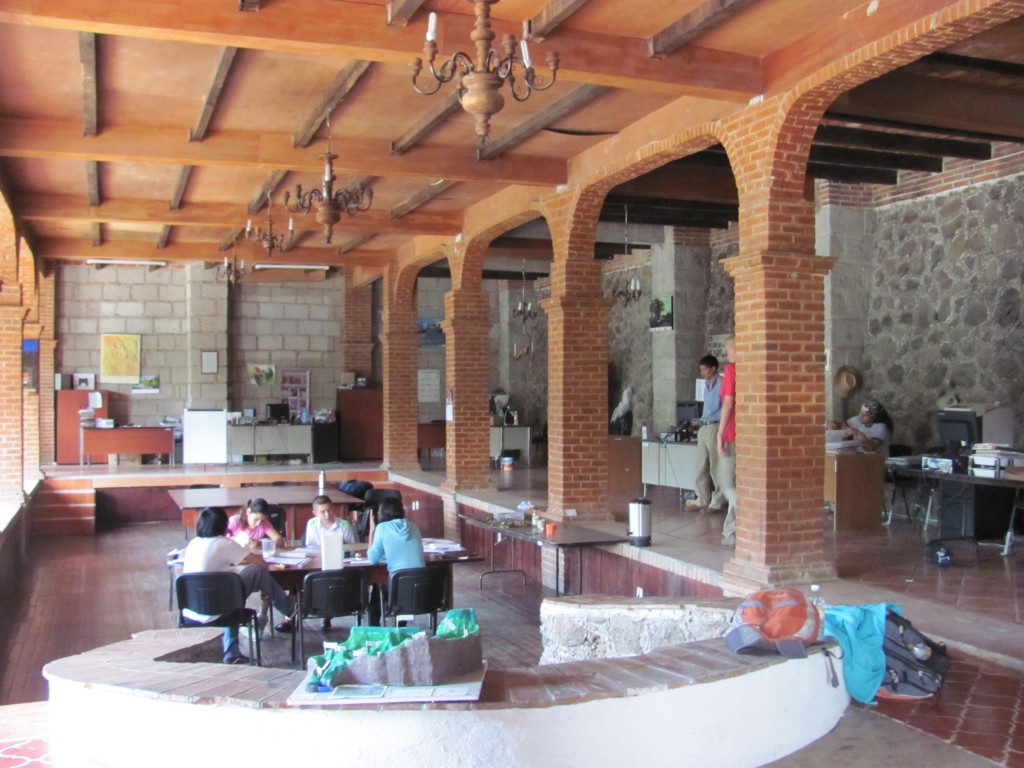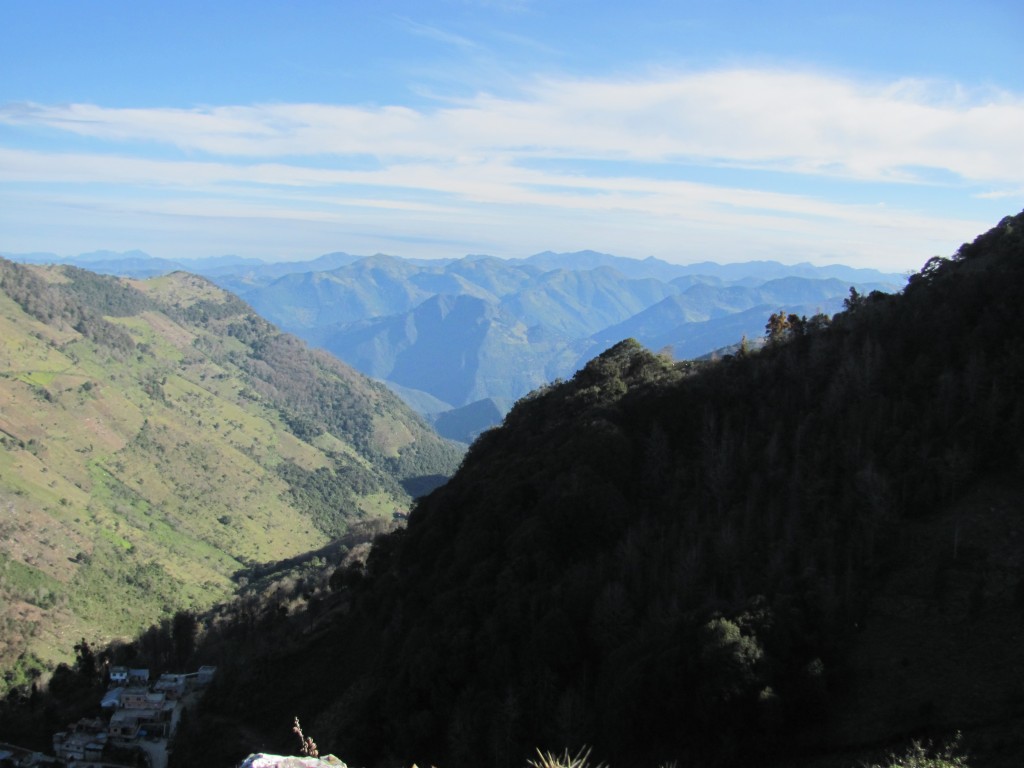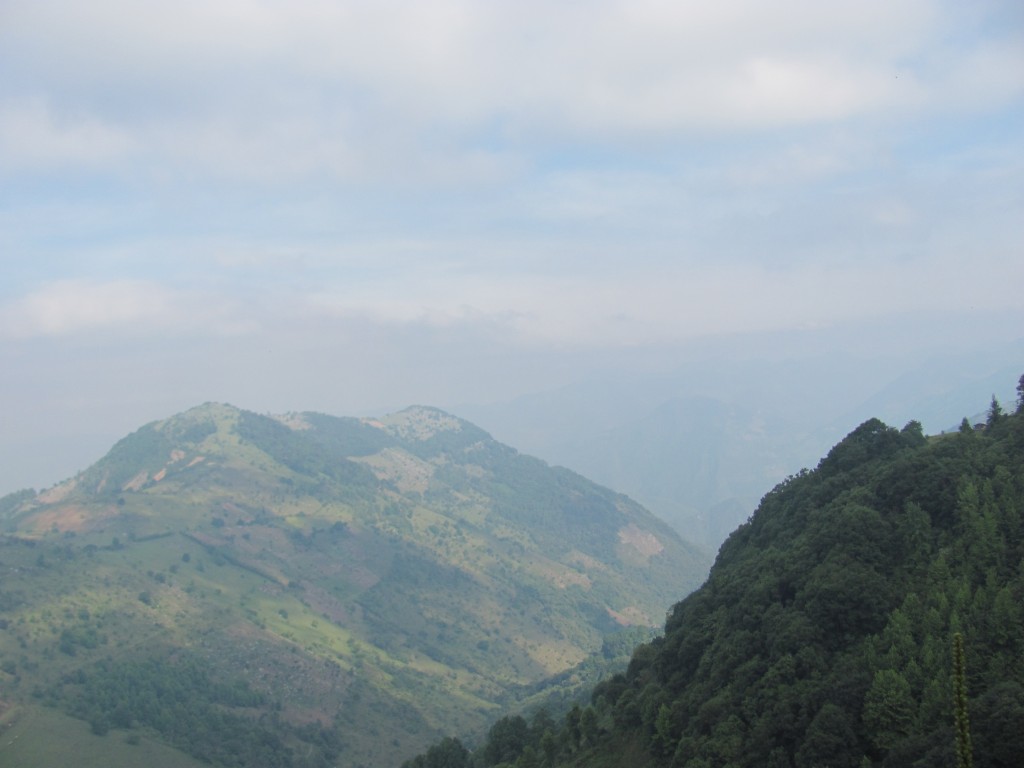I remember first reading my Peace Corps assignment and thinking to myself, “How is being assigned to an environmental education project in Mexico going to coincide with environmental policy?” Then I arrived in Mexico and I was told that I would be working in a Biosphere Reserve with CONANP, the branch of the Mexican government in charge of Natural Protected Areas (NPAs), and I became excited. While it is not the elbow-to-elbow type of work I imagined, I still make it in to the office once or twice a month to meet with my CONANP counterpart, a professional colleague with whom I work on specific projects, even though I am stationed in a rural town about 2 hours away.
 The CONANP office in Jalpan, which coincidentally used to be a bar, and is now next door to one…
The CONANP office in Jalpan, which coincidentally used to be a bar, and is now next door to one…
Luckily for me, my location in a recently created Biosphere Reserve and my bimonthly trips to the office have exposed me to some interesting environmental policy situations. The most fascinating of these is getting to witness the successes and challenges of the Reserve I’m in, La Reserva de la Biosfera Sierra Gorda Querétaro (RSBG), the Sierra Gorda Biosphere Reserve of Querétaro.
The RBSG has an interesting creation story. In 1987 civil society came together with the common purpose of protecting the biodiversity and natural resources of the Sierra Gorda of Querétaro by making it a federally declared NPA. This goal-oriented group spoke with the voices of the hundreds of communities from the five municipalities residing in the proposed area of 383,567 hectares, and did not rest until the area was federally declared protected in 1997. It is the only case in Mexico of a NPA being created as the result of pressure from civil society.
Sierra Gorda translates to “fat mountain range”
Once the Reserve was established, a CONANP office was set up in Jalpan de Serra, Querétaro to manage the natural resource and biological conservation in the 600+ communities.
Like any biosphere reserve, the RBSG faces many challenges. The action of becoming a NPA alone does not inherently protect the biodiversity and natural resources of the Sierra Gorda of Querétaro. It needs people, organizations and agencies to work together to make sure that protection and proper management happens.
One of the biggest challenges in the Reserve is zoning enforcement, or enforcement of the laws that protect its biodiversity and natural resources. In fact, a common problem among all types of natural protected areas, from Marine Protected Areas (MPA) to National Parks, is weak enforcement.
The fragmentation of forest by land cleared for milpa (traditional crop growing systerm of Mexico) and cattle
A widely acknowledged solution to this problem is to get the communities within the NPA involved in the enforcement role. In the RBSG, CONANP has already taken steps with this solution in mind. The Community Vigilance Program (PROVICOM) is a government program that trains and pays community members to monitor and protect the NPA that they live in. While PROVICOM is a great first step, the community members involved in the program can still only make a “denuncia,” or denounce a person for breaking the rules. They have no authority to fine or punish the guilty party.
While dealing with the challenges it faces, the Reserve has also had many successful environmental projects implemented within its boundaries. Besides CONANP, the following agencies/ organizations are implementing projects ranging from eco-tourism to payment for ecosystem services and everything in between:
- CONAFOR (National Forestry Commission of Mexico)
- Grupo Ecologico Sierra Gorda I.A.P.
- Bosque Sustentable, A.C.
- Productos y Servicios Turísticos Sierra Gorda, S.A. de C.V.
- Joya del Hielo, A.C.
- Viva Sierra Gorda
- Sierra Gorda Ecotours
In my two years of working in a biosphere reserve I have witnessed the people in the CONANP office in Jalpan work endlessly to help manage and protect a reserve that they care greatly about. Yes, there are some weaknesses in the RBSG, as there are in every NPA, but successful projects get carried out every day. Thanks to my Environmental Policy class at Bard CEP, I have been able to assess and make sense of the realities I have observed living in a biosphere reserve which will help me in my current and future work.


